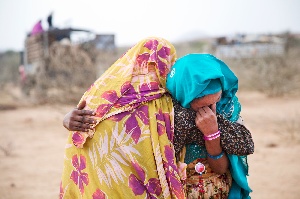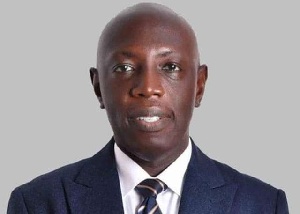Africa News of Monday, 19 May 2025
Source: www.ghanawebbers.com
Sudanese Displacement to Egypt Reshapes Views On FGM
Cairo / Beirut — Dr. Dima Dabbous is the MENA Director at Equality Now. This global rights group focuses on women and girls. In an interview with Radio Dabanga, she discusses a new report on female genital mutilation (FGM) in Sudanese communities in Egypt. Dr. Dabbous explains how FGM affects Sudanese families displaced to Egypt.
The war in Sudan began in April 2023. Many people have fled to neighboring Egypt for safety. The report, released by Equality Now and Tadwein for Gender Studies, examines FGM practices among Sudanese women due to displacement. It is one of the few studies of its kind in the region.
Sudan has some of the highest rates of FGM globally. A 2014 survey found that 86.6% of Sudanese women aged 15 to 49 had undergone FGM. For girls aged 0 to 14, this figure was still concerning at 66.3%. The practice is deeply rooted in cultural and social expectations.
Dr. Dabbous states that "the practice is so normalized that it often continues despite the law." She explains that FGM relates to family honor, purity, and marriageability. Many believe uncut daughters bring shame or risk remaining unmarried.
Even when families recognize the harm caused by FGM, community pressure remains strong. Dr. Dabbous notes that "in Sudan, fear of legal consequences is less strong than in Egypt."
In 2020, Sudan criminalized FGM after years of advocacy efforts. However, campaigners argue enforcement remains weak and does not stop the practice. Dr. Dabbous emphasizes that tradition still holds significant influence.
She says legal reforms are important but must be paired with education and community dialogue for real change.
Migration complicates attitudes toward FGM among Sudanese migrants. Those who rejected the practice often carry those beliefs with them but may face pressure from tight-knit networks that preserve tradition.
Dr. Dabbous explains that small migrant networks can sustain FGM practices because they support each other within their communities.
Education plays a crucial role in changing attitudes toward FGM. Families with higher education levels are less likely to continue the practice.
Intergenerational dialogue is also vital for change. "Grandmothers are key influencers," says Dr. Dabbous, while fathers tend to have less impact on decisions about FGM.
Some men oppose the practice but often defer to grandmothers' wishes instead.
To drive change, campaigners should target grandmothers and elderly family members who decide whether or not to perform FGM.
As Sudan's crisis deepens, addressing FGM ties into broader health and rights issues within fractured communities.
Dr. Dabbous believes understanding is essential for effective advocacy against FGM: "If we don't understand why it continues or stops, we can't develop effective campaigns."
She highlights youth engagement, stronger legal enforcement, involvement from leaders, and better access to education as critical tools for change.
"Understanding why FGM persists or ends informs our responses," she adds, emphasizing insights from Sudanese families' experiences are crucial for developing solutions.











